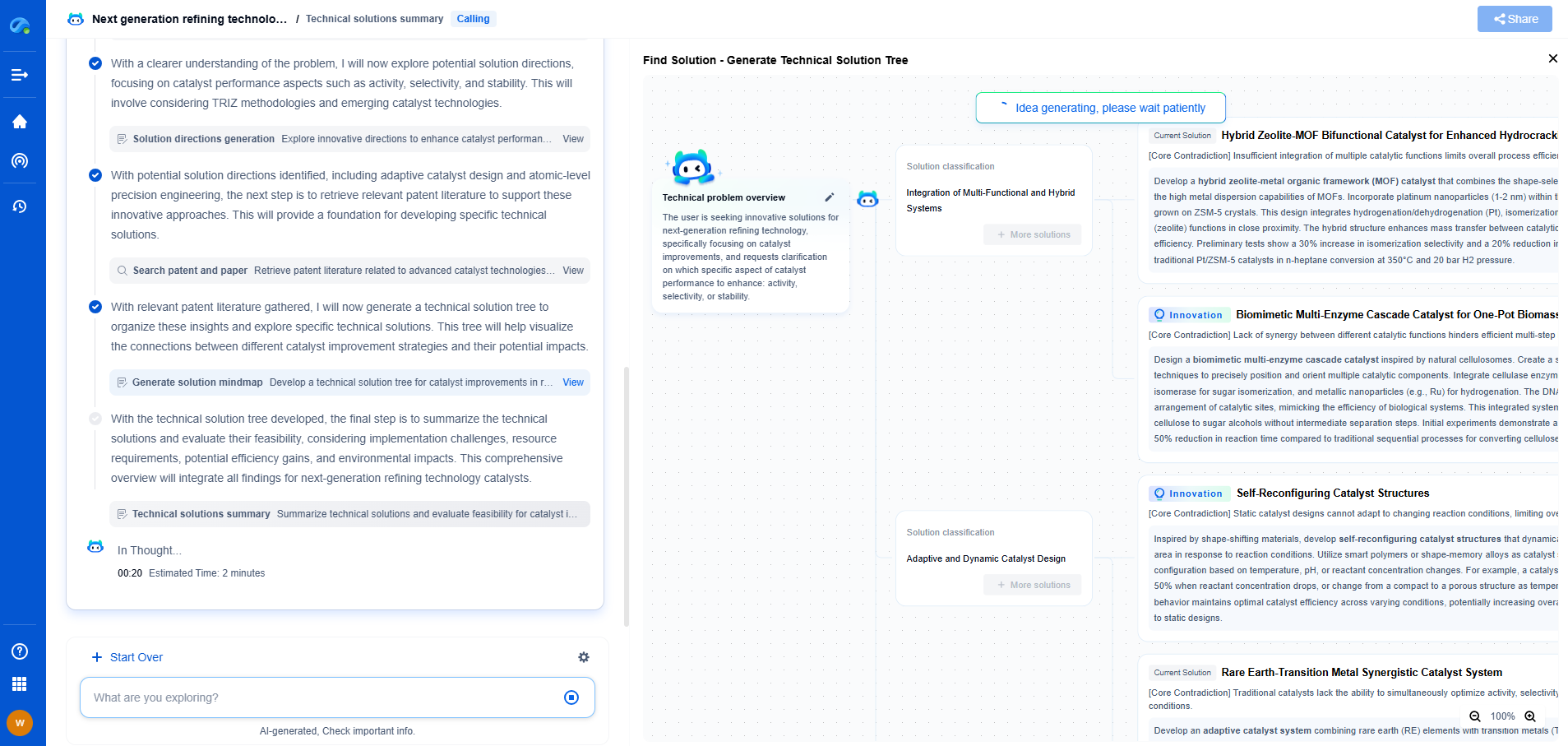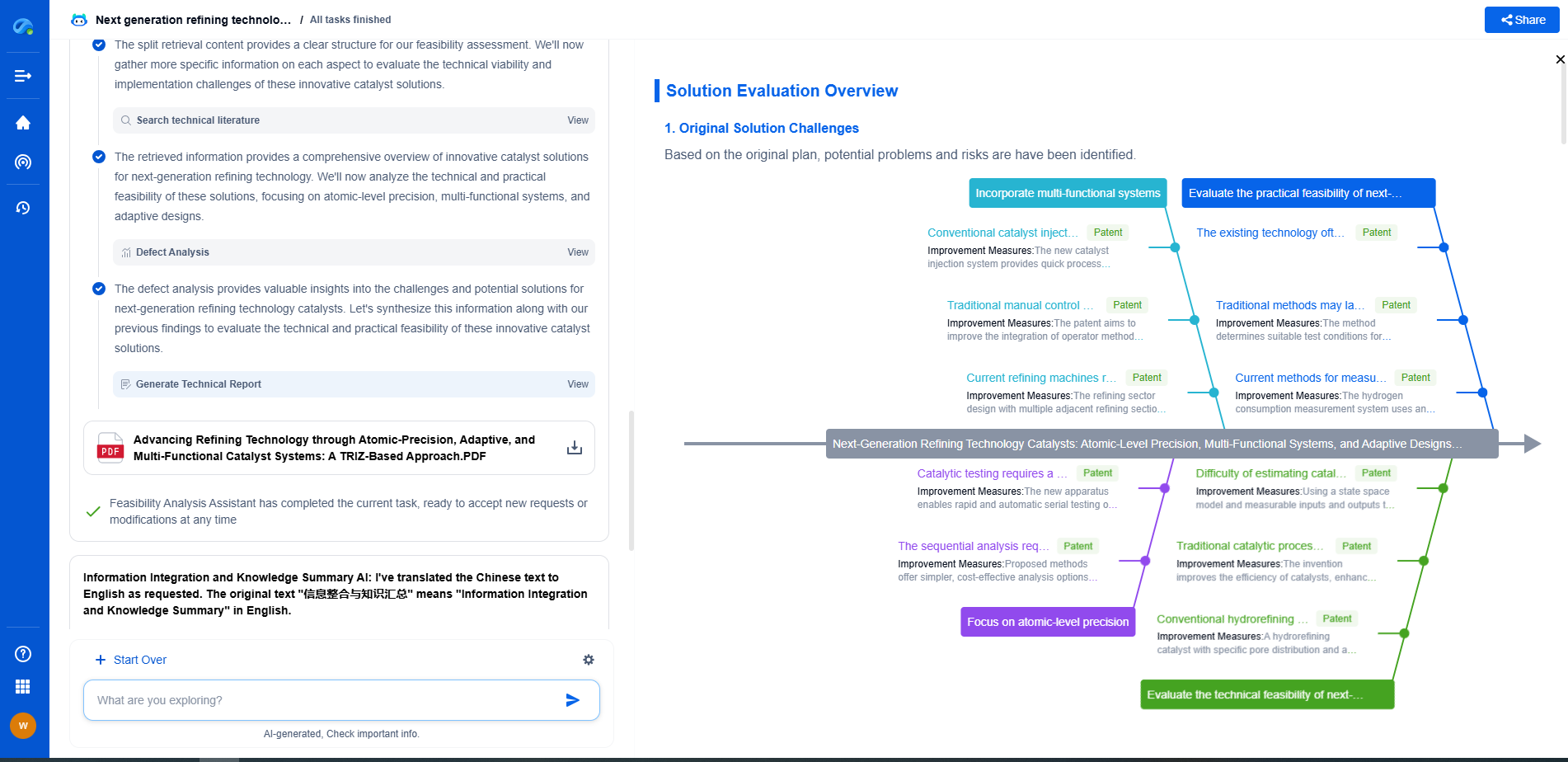Cloud Logging vs. Local Storage: Trade-offs in Data Accessibility and Security
JUL 9, 2025 |
In today's digital age, businesses and individuals alike face the important decision of where to store their data. Two popular options are cloud logging and local storage. Each method has its own unique advantages and drawbacks, particularly in terms of data accessibility and security. Understanding these trade-offs is crucial for making informed decisions about data management strategies.
**Data Accessibility: Cloud Logging**
Cloud logging refers to the practice of storing data in online servers managed by third-party providers. This option offers unparalleled accessibility. Data stored in the cloud can be accessed from anywhere in the world, provided there is an internet connection. This is particularly advantageous for businesses with remote teams or for individuals who require constant access to their data on the go. The flexibility offered by cloud logging can streamline operations and enhance productivity by ensuring that everyone has the data they need when they need it.
**Data Accessibility: Local Storage**
In contrast, local storage involves saving data on physical devices such as hard drives, servers, or other on-premise equipment. While this method ensures that data can be accessed without relying on an internet connection, it also means that accessibility is limited to the physical location of the storage device. This can pose challenges for teams that operate from multiple locations or for individuals who travel frequently. However, for organizations that prioritize having direct control over their data, local storage can provide a sense of security and reliability.
**Security Considerations: Cloud Logging**
When it comes to security, cloud logging has both strengths and weaknesses. Cloud service providers often invest heavily in advanced security measures to protect their clients' data, including encryption, firewalls, and multi-factor authentication. These security features can be difficult and costly for individual organizations to implement on their own. However, entrusting sensitive data to third-party providers also introduces potential risks, such as data breaches or unauthorized access. It is crucial for users to thoroughly vet cloud providers and ensure compliance with relevant security standards.
**Security Considerations: Local Storage**
Local storage offers organizations complete control over their data security measures. This can be a significant advantage for those who have the resources to implement robust security protocols. By managing data on-site, organizations can tailor their security strategies to specific needs and maintain direct oversight of their systems. Nevertheless, local storage is also vulnerable to physical threats, such as theft, natural disasters, or hardware failures. It is essential to have comprehensive backup and recovery plans in place to mitigate these risks.
**Cost Implications**
Cost is another important factor to consider when choosing between cloud logging and local storage. Cloud services typically operate on a subscription model, which can be cost-effective for businesses that require scalable storage solutions. However, these costs can accumulate over time, especially as data storage needs grow. On the other hand, local storage often involves a higher initial investment in hardware and infrastructure, but it can offer long-term savings if well-maintained and efficiently managed.
**Scalability and Flexibility**
Cloud logging excels in terms of scalability and flexibility. As data needs fluctuate, cloud services allow for easy adjustments to storage capacity without significant downtime or cost implications. This adaptability is valuable for businesses experiencing growth or seasonal variations in data loads. Local storage, while more rigid, can still offer scalability through additional hardware investments. However, this process is often more time-consuming and expensive compared to the seamless scalability offered by cloud solutions.
**Conclusion**
Both cloud logging and local storage present distinct trade-offs in the realms of data accessibility and security. Cloud logging provides unmatched accessibility and scalability but requires careful consideration of security and cost concerns. Local storage offers direct control and potential long-term savings but may limit accessibility and flexibility. Ultimately, the decision between cloud logging and local storage should be based on individual or organizational priorities, including security requirements, budget constraints, and operational needs. By understanding the benefits and limitations of each option, data managers can make informed choices that align with their specific circumstances and goals.
Navigating the evolving world of electrical measurement—from high-precision signal integrity to advanced test protocols like BERT or TDR—demands more than just expertise; it demands smart tools.
Patsnap Eureka empowers you to keep up—by turning complex patent data, technical parameters, and industry signals into actionable insight. It’s your AI partner for exploring what’s next in test, measurement, and electrical diagnostics.
💡 Try Patsnap Eureka for free and see how it transforms the way you work with electrical measurement technologies.
- R&D
- Intellectual Property
- Life Sciences
- Materials
- Tech Scout
- Unparalleled Data Quality
- Higher Quality Content
- 60% Fewer Hallucinations
Browse by: Latest US Patents, China's latest patents, Technical Efficacy Thesaurus, Application Domain, Technology Topic, Popular Technical Reports.
© 2025 PatSnap. All rights reserved.Legal|Privacy policy|Modern Slavery Act Transparency Statement|Sitemap|About US| Contact US: help@patsnap.com

